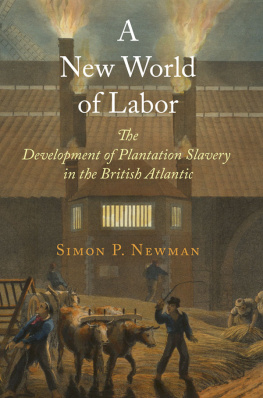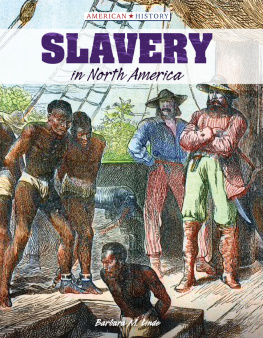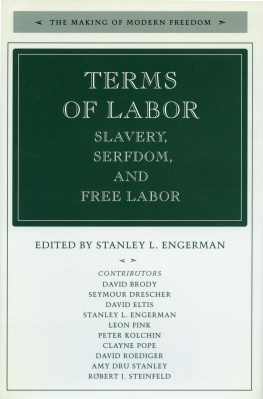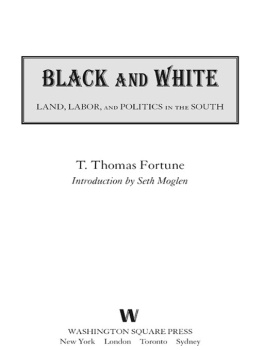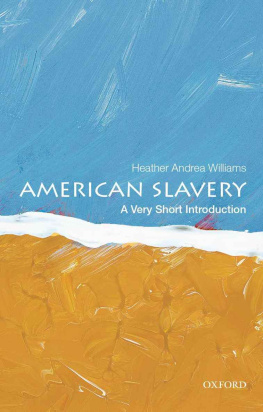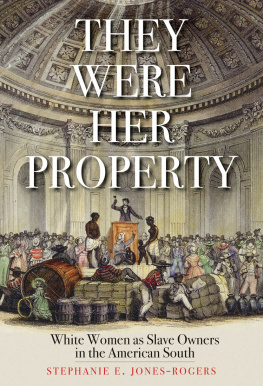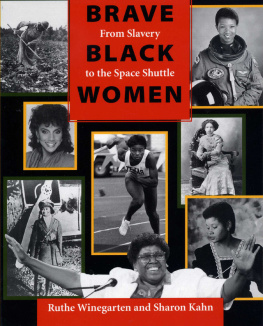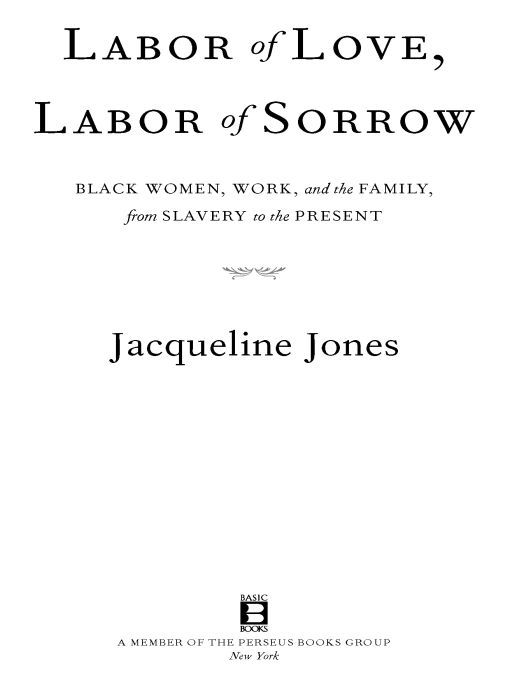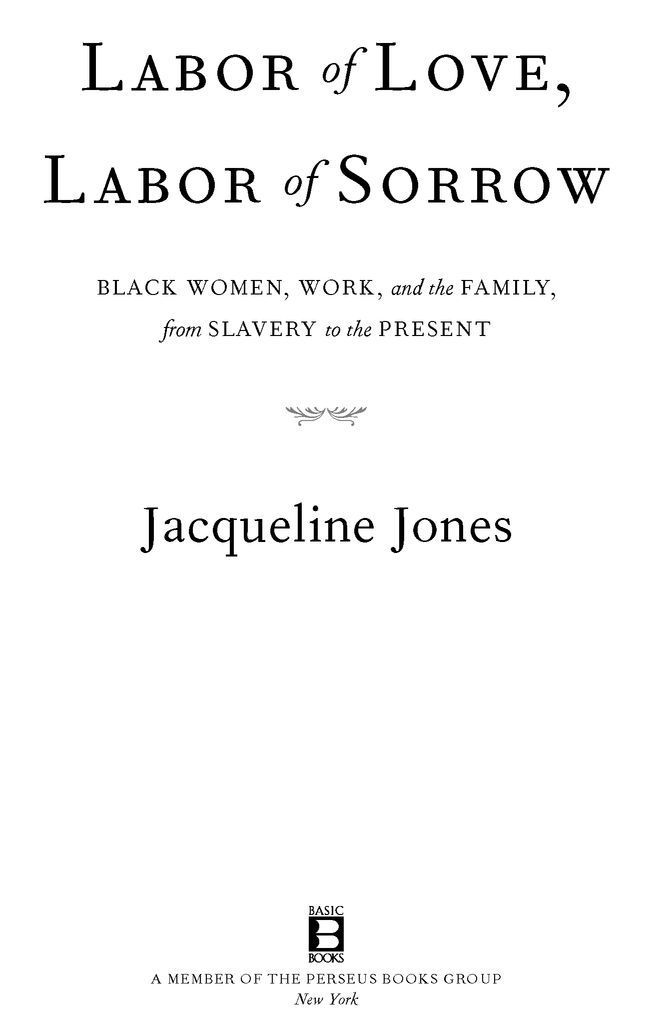Table of Contents
For Jeffrey
How I got over, how did I make it over?
You know, my soul look back in wonder,
How did I make it over?
How I made it over,
Comin on over, all these years.
You know, my soul look back in wonder,
How did I make it over?
Tell me how we got over, Lord;
Had a mighty hard time, comin on over.
You know, my soul look back in wonder,
How did we make it over?
Tell me how we got over, Lord;
Ive been falling and rising all these years.
But you know, my soul look back in wonder,
How did I make it over?
FROM How I Got Over, GOSPEL SONG
ACKNOWLEDGMENTS FOR THE 1985 EDITION
This project grew out of a course in womens history that I began teaching at Wellesley College in 1977. At the time, little in the way of published material on the history of black working women was available to undergraduates. Moreover, widely held among my (mostly white, middle-class) students was the conviction that work outside the home always amounted to a liberating experience for women regardless of their race, age, or marital status. Over the last few years, several classes of Wellesley students have become more familiar with the history of black working women, a topic of concern in all my courses, whether on reform, the South, women, the Civil War, the family, the Great Depression, the nineteenth century, or a survey of American history. Without exception my students responded to this story with great interest and enthusiasm; their willingness to reevaluate their own preconceptions related to work and family life has sustained me through several years of research and writing. Each semester I was able to count on a receptive audience for my findings long before they were published. Therefore it is appropriate that I first acknowledge the help of my Wellesley students, who provided me with the initial inspiration for this study and who eagerly explored with me the various details and broad themes that ultimately gave the project its shape.
The National Endowment for the Humanities funded an initial year of research, and the Wellesley College Center for Research on Women provided a forum in which to present preliminary findings, both through its seminar series and its working papers list. Various grants administered by the center also enabled me to hire student research interns for three summers. The college faculty awards committee and history department made possible additional support for student assistants, and I was able to draw upon the talents of Carol Corneilse, Sherrie Inness, Carol Mapoma, Lydia Luz, Twinkle Shipes, and Chana Woods for data collection and preparation of numerous drafts of the manuscript (using, of all antiquated machines, an electric typewriter). Brian Drayton rescued me from a number of stylistic and organizational gaffes. The reference, circulation, and interlibrary departments at the Wellesley library managed to track down many obscure sources and helped me locate missing ones, including books I had forgotten were checked out to myself. I would also like to express special thanks to Jean C. Proctor (wily in the ways of the Wellesley bureaucracy), for she is as good a friend as she is skilled as an administrator in the Wellesley history department.
Several scholars were most generous with their time and expertise. My colleagues at Wellesley who read drafts and supplied much useful information on specific issues included Jerold Auerbach, Paul Cohen, Marsha Darling, Weldon Jackson, Julie Matthaei, Kathryn Preyer, and Susan Reverby. Nancy Gabin graciously allowed me to use some of the fascinating material she had gathered on women auto workers during the World War II era. Michael P. Johnsons thorough reading of the Federal Writers Project Slave Narrative Collection yielded some crucial examples in the chapter on slavery. Elizabeth Pleck and Milton Cantor read several chapters in draft form and offered a number of perceptive comments. Ira Berlin and Stanley Engerman provided helpful and detailed comments on drafts during the earliest stages of the project and helped me define the major issues more precisely. Ellen Fitzpatrick perhaps heard more about this project than she would have liked; but she was always willing to take time out from her own busy schedule of writing and teaching to lend a sympathetic ear, read drafts, and help sort out knotty theoretical issues. Her support has meant a great deal to me.
Three historians in particular lent me their wise counsel, and the project as a whole benefited enormously from their collective and individual insights. Nell Irvin Painter gave the entire manuscript a meticulous reading and encouraged me to think more carefully about the dynamics of class in relation to Afro-American history. Eric Foner also read the manuscript with painstaking care and urged me to place contemporary political issues into historical perspective. Steve Fraser has long had a commitment to this project. I shamelessly took advantage of his patience and detailed understanding of American labor history, and received invaluable encouragement in return. All three of these individuals were thorough and tough-minded in their criticism of various drafts; on more than one occasion after digesting their comments, I gave myself credit only for knowing a good suggestion when I saw one.
During the past few years I have had ample opportunity to ponder the relation between my own work and family life. Unlike many other working women today or in the past, I was able to count on friends and babysitters who provided my daughter with the most loving and reliable care possible. Without the services of Ingrid Kondos, Sigrid Bergenstein, Anne Gillis, and Eileen MacDermott in particular I could not have finished this book. Sarah Jones Abramson herself had a mixed effect on the process of research and writing. Too often she was happy just to drool on notecards and nibble on books. Yet her lovely presence was a constant reminder of what a luxury it is for a gainfully employed mother in this country to have a job that she enjoys and childcare arrangements she trusts. Sarah helped me to realize that the story that unfolds on the following pages has behind it the drama and force of everyday life.
The household that has two books in press at the same time is neither a very tranquil nor tidy one, but Jeffrey B. Abramson has endured the chaos with good humor and patience. He was busy writing his own book, and, unlike the traditional historians spouse, he did not check any of my footnotes or type any of my drafts. But the elegant precision of his writing set a high standard for me, and he helped with the formulation of several sections of the study. Most important, his compassionate vision of a just and free societya community based on political and economic equality for all its members, and on tolerance and respect for diverse cultures as well as individualshas informed not only his own work but mine as well. I dedicate this book to him and to that ideal.
PREFACE TO THE NEW EDITION
Soon after I learned that Basic Books intended to reissue Labor of Love, Labor of Sorrow in a twenty-fifth anniversary edition, a number of friends, colleagues, and family members offered me advice (admittedly, most of it solicited) on revising the original text. Almost without exception they suggested that I add a new preface, and extend the epilogue to the present, leaving the rest of the chapters intact. They pointed out, correctly, that so much had been written on the history of black working women since the book was first published it would be virtually impossible to incorporate all of that new scholarship into a revised edition. Overall, the books argumentthe profound tension between black womens work for whites and the work they performed for their own families and communitieshad withstood the test of time, classroom use, and reviewers. Of course the emergence of one particular black working wife and mother onto the public stage in late 2008 suggested the urgent need for an update; the family history of First Lady Michelle Robinson Obama, and the narrative of her life, would provide a fitting coda to the book, a way to survey the grand sweep of African American history over the last century and a half. Her great-great-grandfather Jim Robinson, an enslaved rice hand, was born in the South Carolina low country in 1850, a time and place discussed in Chapter 1. By the late twentieth century, Robinson Obama had graduated from Princeton University and Harvard Law School, and was working in a series of high-powered jobs as an attorney. Expanding the epilogue to include the Robinsons seemed to be a fitting way to highlight the crosscurrents of historical transformation and continuity from the antebellum period to the present.


